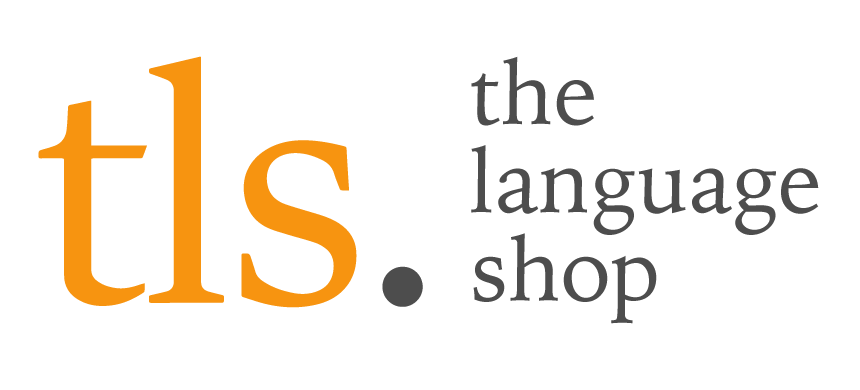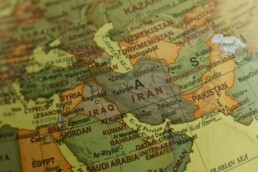in other news: stories from the language industry and beyond (April)
Language barriers can cause medical harm - BBC News A woman who went to her GP with a urinary tract infection missed opportunities to have her stage 4 cancer detected, as she used her son to interpret, a report has found. AND FINALLY: Deaf interpreter Topher González Ávila has gone viral for his exuberant interpretation of I’m Just Ken at the Oscars. Watch his fabulous performance here!
Language fact file: Farsi/Dari/Tajik
Spoken in: Iran (Farsi), Afghanistan (Dari), Tajikistan (Tajik)
Number of native speakers: 72 million
Learn some: If you are introduced to someone, say it’s nice to meet them with ‘khoshvaghtam’!
Fast facts:
- While Farsi and Dari are dialects of the same language, they are only mutually intelligible when written. The spoken form of each dialect sound very different. By contrast, Farsi and Tajik are only mutually intelligible in their spoken forms but not their written forms!
- Farsi is one of the oldest languages in the world that is still spoken. A Farsi reader can read poetry written around 300AD with little trouble compared to an English speaker reading something in English of that time.
- Farsi poetry plays an incredibly important role in everyday life. The language is so well known for its poetry that the walls of the UN building in New York City are inscribed with words from famous Farsi poet, Sa’adi. They read: “Human beings are members of a whole, since in their creation they are of one essence. When the conditions of the time bring a limb to pain, the other limbs will suffer from discomfort. You, who are indifferent to the misery of others, it is not fitting that they should call you a human being.”
Best practice guide to interpreting for refugees and asylum seekers
Providing communication support for refugees and asylum seekers comes with its own unique challenges and needs extra care and preparation. Most people will not flee their home country without having faced significant adversity there and may come to you in a traumatised state.
At TLS, we supply interpreters who are trained and experienced to handle these interactions in a sensitive and appropriate way. They will approach emotional and difficult conversations with professionalism and care. They will communicate but not advocate.
You can play a part in making sure you support your service users who are refugees or asylum seekers. Here are some tips around communication support:
- If you can, find out before making the booking whether your service user would prefer an interpreter of a particular gender and political or cultural background. For example, it may not be appropriate to use an interpreter who is from an ethnic group that has been involved in violence or oppression in the service user’s country of origin.
- Refugees and asylum seekers may not know they can request language support. Posters in reception areas can help raise awareness, especially if they are displayed in a variety of languages. Speak to us if you need one of these.
- Ensure reception staff know how to book an interpreter and offer this option proactively. Keeping a language ID chart at reception can help staff identify what language a patient speaks.
- Be aware that, as with any potentially traumatised service user, you may need to take the conversation slowly. If the conversation is face to face, position yourself in a way that does not intimidate or make the service user uncomfortable. A triangular seating arrangement is usually best, but the UN Refugee Agency recommends that interpreters sit slightly closer to child service users than they do the client, so as not to inadvertently take a position of authority.
- As always, use professional language interpreters. It may be harder to persuade people coming from countries where they were persecuted by authorities not to use friends or relatives, but it is always best. Take the time to explain why and please do ask us for any support with this that you may need.
Talk to us if you would like to know more about how we support refugees and asylum seekers in our bookings, either by speaking to your account manager or calling 020 3373 4000.
the linguist's story
Every month, we get to know a bit more about one of our linguists. This month, meet Shafiqa Shairshah, an interpreter working in Dari and Farsi.
Tell us about the work you do for TLS.
I have been working at TLS since 2016 as a community interpreter in education and health care, particularly on mental health and child/adult services. I mainly do telephone interpreting appointments and occasionally face to face. The majority of clients I interpret for struggle with mental health and housing issues as they are new to the country, fleeing from conflict in Afghanistan/Iran.
What has been your favourite project at TLS?
My favourite project has been dealing with mental health appointments and being available on demand when need be. It brings me a lot of joy knowing that I have helped refugees feel seen and heard during their appointments and therapy sessions.
What has been your biggest challenge?
My biggest challenge was interpreting for trauma therapy as the patients go in detail about explicit and troubling times during the Afghan war - it's unimaginable what some people go through, including in my own home country of Afghanistan, and then they are trying to make a living in a completely foreign country. But it is a necessity to survive.
Can you tell us about a time your work has made a difference to someone’s life?
There have been countless times when our patients have felt very appreciative of the interpreting and getting their thoughts and feelings across clearly. One of the patients I was interpreting for in their talking therapy has said that my interpreting has made a big difference to how they felt more seen and heard. Another patient I was interpreting for was in desperate need of housing aid, as they were going to be evicted and homeless in less than two weeks, but by the end of the appointment we managed to find some help for this issue and the client was beyond grateful. They mentioned that if they were to have ended up homeless that they would have gone into severe depression and thankfully we were able to get them out of that position.
Tell us something interesting about you.
I am interested in gardening and looking after different types of flowers. My husband and I are immensely fond of taking care of our indoor and outdoor plants and flowers in our back garden and I do take a lot of pride in how beautiful we make it. My favourite flower would be lilies and roses, although it is quite hard for me to choose out of the wide variety!
What are your ambitions for the next 12 months?
In the next 12 months I would like to travel to Turkey with my family and keep doing what I’m doing as an interpreter for TLS. I would also like to focus more on my healthy living and lifestyle as I find this very important, whatever age you're at!
TLS a registered supplier to the Language Services Framework
We are pleased to announce that TLS is now a registered supplier of language services to the Language Services Framework, through The North of England Procurement Collaborative. The framework was designed in 2007 by the NHS, for the NHS. This flexible framework can provide a complete solution for customers seeking language services to support delivery to service users who speak, communicate in, or read languages other than English, either individually or in groups. Customers can access all our language services through this and other frameworks. If you have any questions, please contact Samantha Oates at Samantha.oates@newham.gov.uk
your month ahead - Important upcoming dates for your calendar
Eid al-Fitr, on or around 9 April, depending on the first date of Ramadan
Eid al-Fitr marks the end of Ramadan and, for many Muslims, a month-long fast during daylight hours. It is a joyous celebration, usually focused on food, especially desserts. However, with approximately 2 billion Muslims worldwide, celebrations vary from country to country.
One of the five pillars of Islam is zakat, which means giving to charity. At Eid al-Fitr, there is special charitable giving called Zakat al-Fitr. It is usually given in advance of Eid, so that those in need of it can use it to celebrate.
Wish your Muslim friends an Eid Mubarak, which means ‘blessed Eid’!
Good Friday, 29 March; Easter Sunday, 31 March; and Easter Monday, 1 April
Easter is the most important festival of the Christian calendar and commemorates Jesus Christ’s crucifixion and resurrection. It lasts for the whole week from Palm Sunday, a week before Easter Day, but here we look at the three main celebrations: Good Friday, Easter Sunday and Easter Monday.
Good Friday is the Friday before Easter Sunday. It commemorates Christ’s crucifixion. It is a sad day for Christians, which is honoured with a special service in church, where Christians remember Christ’s suffering, which they believe was to save us.
In some countries, there are special Good Friday processions, or re-enactments of the crucifixion.
Easter Sunday marks the occasion, two days later, when some of Christ’s disciples went to the cave where he had been buried, to find that the rock marking the entrance had been moved aside. Two men appeared and told them that Jesus had risen as he had said he would. Later, Jesus appeared to Mary and on another occasion to his followers. It was then that they believed he had been resurrected.
Easter is celebrated with symbols of new life, such as eggs, spring flowers and baby animals. It marks the end of Lent, a period of fasting and deprivation for Christians. Across the world, it is celebrated in many diverse ways, but these often focus on food.
Easter Monday itself is not an explicitly religious day, though it is marked by Christians celebrating Christ’s resurrection. It is the last day of a long weekend and the date of many traditions around the world, such as egg-rolling or parades.
FREE online events
Racism & Race Awareness – Lunch & Learn Tickets, Tue 9 Apr 2024 at 14:00 | Eventbrite
Join the Inclusive Employers Community! - Inclusive Employers, 18 April at 10:00
April’s dates at a glance
Religious and Cultural
1 – Easter Monday, Christian
6 – Laylat Al-Qadr, Islam
9 – Chaitra Navratri begins, Hindu
9 – Ugadi (New Year), Hindu
10 – Eid Al-Fitr, Islam
13 – Songkran (Thai New Year), Buddhist
13 – Vaisakhi, Hindu And Sikh
14 – Puthandu, Hindu
15 – Navpad Oli begins, Jain
17 – Rama Navami, Hindu
18 – Birthday Of Guru Angad Dev, Sikh
21 – First day of Ridvan, Baha’i
21 – Mahavir Janma Kalyanak, Jain
21 – Grounation Day, Rastafari
23 – Saint George’s Day, Christian
23 – Hanuman Jayanti, Hindu
23-30 – Passover, Judaism
24-26 – Theravada New Year, Buddhist
25 – Feast of Saint Mark the Evangelist, Catholic Christian
27 – Lazarus Saturday, Orthodox Christian
28 – Palm Sunday, Orthodox Christian
29 – Ninth day of Ridvan, Baha’i
30 – Saint James The Great’s Day, Orthodox Christian
Awareness and Events
1 – Fools’ Day
2 – World Autism Awareness Day
6 – International Asexuality Day
7 – World Health Day
8 – International Romani Day
22 – Earth Day
22-28 – Multiple Sclerosis Awareness Week
25 – World Malaria Day
26-28 – Tuc's Black Workers' Conference
26 – Lesbian Visibility Day
28 – World Day for Health and Safety at Work
in other news - stories from the language industry and beyond
UK Government press conferences will have ‘in situ’ BSL interpreting from spring 2024
A Deaf journalist named Liam O’Dell has been reporting on the UK government’s decision not to use a BSL interpreter at Coronavirus briefings back in 2020, and the subsequent campaign to introduce live interpreting at its press conferences. The campaign has achieved its goals and the government has agreed to have a live BSL interpreter from spring this year.
And finally… Welsh translation error directs drivers to 'town egg gas' - BBC News
A spelling mistake on a Welsh road sign is a reminder to us all not to cut corners and always invest in high quality linguistic support!
language fact file
Spoken in: Romania and Moldova.
Number of native speakers: 25 million.
Learn some: Greet people at any time of day with ‘bună!’ Another useful phrase in a shop or at the market is ‘cât costă?’, which means ‘how much does it cost?’.
Fast facts:
- Romanian is the only Romance language in Eastern Europe, meaning it derives from Latin. Speakers of other Romance languages can therefore pick it up relatively easily, compared to other Eastern European languages. It is also the only Romance language to retain the neuter gender of Latin (ie not masculine or feminine).
- However, as Romania is isolated from the block of Romance languages in Western Europe, it has influences from Slavic languages (20%) and others including Turkish, Hungarian and Greek (5%). This makes it a very rich and interesting language.
- Although Romanian has two main plural forms, the way you make a plural can change depending on the grammatical case you’re using, the declension of the word (ie how it changes according to its function in a sentence) or irregularities. There could be up to 30 different plural forms but the exact number is not on record!
the linguist's story
Tell us about the work you do for TLS.
I’m a Romanian interpreter working in medical and mental health bookings, and increasingly social work, housing and benefits. I also have a lot of telephone interpreting bookings from prisons, usually people who have come over without documents and are being held before deportation or a court case. Often I will be working with a charity to support these people, as they have absolutely nothing.
What's been your favourite project at TLS?
I can’t name one! I have worked as an interpreter for a long time and TLS has the most amazing team. Everyone is so helpful. People always respond to me immediately if I have questions; I feel really respected.
What has been your biggest challenge?
Working with children and families who are struggling to buy food and feed themselves. I am currently trying to start a family of my own, so it’s especially hard to see.
Can you tell us about a time your work has made a difference to someone’s life?
Not long ago I had a case with a mother and her daughter, who had muscular dystrophy. The mother had no income and no possibility of working, as she was a full-time carer. She was trying to apply for Universal Credit, which wasn’t the right benefit for her. The social worker couldn’t explain to her how to apply for different benefits. It was a very difficult situation.
I was able to communicate that she should apply for Carers Allowance. They called me again for an interpreting booking and I was so happy to hear that the mother got the benefit she needed and could look after her daughter without having to work.
Tell us something interesting about you
I like to create beautiful things from things that have been thrown away. For example, a neighbour had put out a wardrobe with the rubbish. I took it in and painted and decorated it. When it was finished, I took it back to them and asked if they wanted it back and they did – they said they had no idea it could be such a beautiful thing! They gave me some flowers as thanks.
What are your ambitions for the next 12 months?
I have started a Diploma in Public Service Interpreting and I love it. It’s encouraged me to aim higher and I want to work in the courts. I’m always trying to improve my skills and take all the courses that I can. I speak some Spanish and would also like to work on that.
Interpreting in social work settings
When a person or family is involved with social services, they are usually already facing some significant issues. Communication barriers between them and their social workers, such as lack of linguistic fluency or a hearing impairment, can mean they do not get adequate support. People who need communication support often face discrimination, which can be an additional obstacle.
It is the responsibility of the social worker to ensure that their clients receive access to the services they are entitled to; this is where interpreters become a crucial part of the relationship.
In the past, it has been common for informal interpreters, ie friends and family, to step in to bridge the gap. This may seem like a good approach: clients may trust family or friends more than they do external support, and these informal interpreters can be easier to access at short notice. However, research into their use (Lucas, 2015; Dorner and colleagues, 2010) and Serious Case Reviews have highlighted the importance of using professionals. Informal interpreters have on occasion been found to intentionally and unintentionally obscure meaning, collude with clients and prevent opportunities for intervention and support.
At TLS we have interpreters who are skilled and experienced in working in social work settings. We will always work with you to provide the best individual for your service users and will try to accommodate requests at short notice wherever possible.
Here are some tips to help you make the best use of our professional interpreters, to ensure the best support for you and your service users.
- Familiarise yourself with the logistics of booking and using interpreters before it becomes necessary, so that you can be responsive at short notice. Are you set up on and familiar with our bookings system? Do you know how to use telephone interpreting? Do you have access to a desktop computer for video interpreting?
- Consider whether your service user needs an interpreter, even if they have not requested one. Research has found that some women in maternity settings have not requested language support for fear of feeding into negative stereotypes about minority ethnic groups (Crowther and Lau 2019).
- Be prepared for your service user to have reservations about using a professional interpreter in place of family or friends, and be clear about why using professionals is usually best practice.
- If possible, factor in time with the interpreter before the booking begins, to discuss the issues at play, any sensitivities and, if relevant, seating arrangements (the Chartered Institute of Linguists advises that the interpreter should be able to see both parties; a triangular arrangement is usually best).
- Try to avoid using jargon and explain any terminology clearly; even if you think the interpreter will know what you are talking about, it is best for the service user to have this explained in your words.
- Keep your sentences short and clear, and leave time for the interpreter to translate.
- Reflect afterwards: could anything have gone better? Can you ask your service user for feedback?
If you want to learn more, Stirlingshire University have written a report available here: https://www.iriss.org.uk/sites/default/files/2020-04/insights-52_1.pdf
Talk to us if you would like to know more about how we support social work settings, either by speaking to your account manager or calling 020 3373 4000.










